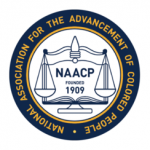Architecture
The science, art or profession of designing buildings or outdoor spaces.
Biology / Microbiology
The science of life or of the origin, structure, reproduction, growth and development of living organisms collectively.
 Chemistry / Biochemistry
Chemistry / Biochemistry
The science that deals with the composition, structure and properties of chemical processes and phenomena of substances and the transformation that they undergo.
Computer Science
The science that deals with the theoretical aspects of computers including storage and the transformation of data using computers.
Earth and Space Sciences
The body of sciences that include geology, mineralogy, physiography, oceanography, meteorology, climatology, astronomy, speleology, seismology, geography, etc.
Engineering
Technology. Projects that directly apply scientific principles to manufacturing and practical uses.
Mathematics
The science of numbers and their operations, interrelations, combinations, generalizations, and abstractions of spaced configurations and their structure. Development of formal logical systems or various numerical and algebraic computations and the application of these principles.
Medicine and Health
The study of diseases and health of humans and animals.
Physics
Theories, principles and laws governing energy and the effect of energy on matter.

